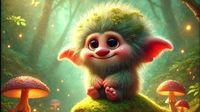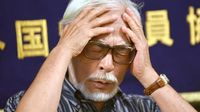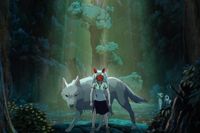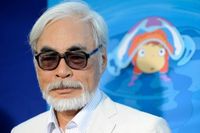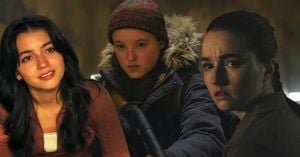The trend of using OpenAI’s ChatGPT to create AI images in the distinctive style of Studio Ghibli has taken a controversial turn, igniting a fierce debate about creativity and copyright. This week, an X user named teej posted a fake cease and desist notice they claimed to have received from Studio Ghibli representatives, which quickly drew skepticism from fellow social media users. In a defense of their actions, teej wrote, "AI creators deserve protection, not punishment. Expression is sacred. Imagination is not illegal. If I have to be a martyr to prove that, so be it." This statement has sparked laughter and disbelief among critics who argue that AI-generated images blatantly rip off the hard work of human artists, including the iconic Hayao Miyazaki and his team at Studio Ghibli.
As the trend of creating AI-generated images in the style of Studio Ghibli continues to gain traction, it has raised ethical concerns regarding the impact of artificial intelligence on the livelihoods of human artists. The latest version of ChatGPT allows users to transform popular memes or personal photos into the distinct style of Miyazaki, a renowned critic of AI who has previously condemned the technology.
In a 2016 documentary titled Never-Ending Man: Hayao Miyazaki, the 84-year-old animator expressed his disdain for AI-generated animation. He recounted a moment when developers showed him a crude AI-generated animation demo, stating, "Whoever creates this stuff has no idea what pain is whatsoever. I am utterly disgusted… I strongly feel that this is an insult to life itself." His remarks resonate today as many artists fear that AI technology will lead to unauthorized use and theft of their work.
This controversy escalated when the official White House X account posted a Ghibli-style image of a crying woman from the Dominican Republic, who was depicted being arrested by ICE. This post, shared on March 27, 2025, quickly garnered over 45 million views but was met with harsh criticism, with many labeling it as "evil" and "ghastly." The backlash highlights the sensitive nature of using AI in contexts that touch on real human suffering.
Moreover, the release of OpenAI’s new image generator, powered by GPT-4o, has further fueled the debate. Users have been generating images that mimic the distinct style of Studio Ghibli, leading to a flood of content across various social media platforms. On the same day of the White House post, OpenAI founder Sam Altman changed his profile picture to a Ghibli-style version of himself, seemingly encouraging the trend.
However, the ethical implications of these AI-generated images cannot be ignored. Critics argue that while OpenAI implemented a guardrail to prevent the generation of images in the style of living artists, users have found ways around these restrictions. This has led to a growing concern over copyright infringement, as the technology generates its knowledge from existing works, which are products of human labor.
In response to the backlash, an OpenAI spokesperson stated, "We continue to prevent generations in the style of individual living artists, but we do permit broader studio styles—which people have used to generate and share some truly delightful and inspired original fan creations." This statement has done little to quell the fears of artists who worry that their unique styles may be diluted or appropriated without proper credit.
Amidst this uproar, the 40th anniversary of Studio Ghibli’s film Princess Mononoke has seen a resurgence in box-office success, with a 4K restoration currently showing in IMAX theaters. Chance Huskey, VP of distribution for Gkids, remarked, "In a time when technology tries to replicate humanity, we are thrilled that audiences value a theatrical experience that respects and celebrates Hayao Miyazaki and Studio Ghibli’s masterpiece in all its cinematic hand-drawn glory." This statement underscores the ongoing appreciation for traditional animation in an era increasingly dominated by digital technology.
The AI-generated content trend has also sparked a broader discussion about the value of human creativity in a world increasingly shaped by algorithms. As users continue to experiment with AI tools, the question arises: what does it mean for the future of artistic expression? While some may see AI as a tool for innovation, others view it as a threat to the authenticity and integrity of human artistry.
The controversy surrounding AI-generated images in the style of Studio Ghibli is not just about copyright; it also touches on deeper philosophical questions about creativity, authenticity, and the role of technology in art. As the conversation continues, both artists and technologists must grapple with the implications of AI on the creative landscape.
In conclusion, the intersection of AI technology and traditional artistry presents a complex challenge that demands careful consideration. As artists like Hayao Miyazaki advocate for the sanctity of human creativity, the rise of AI-generated content calls for a reevaluation of how we define and protect artistic expression in the digital age.
